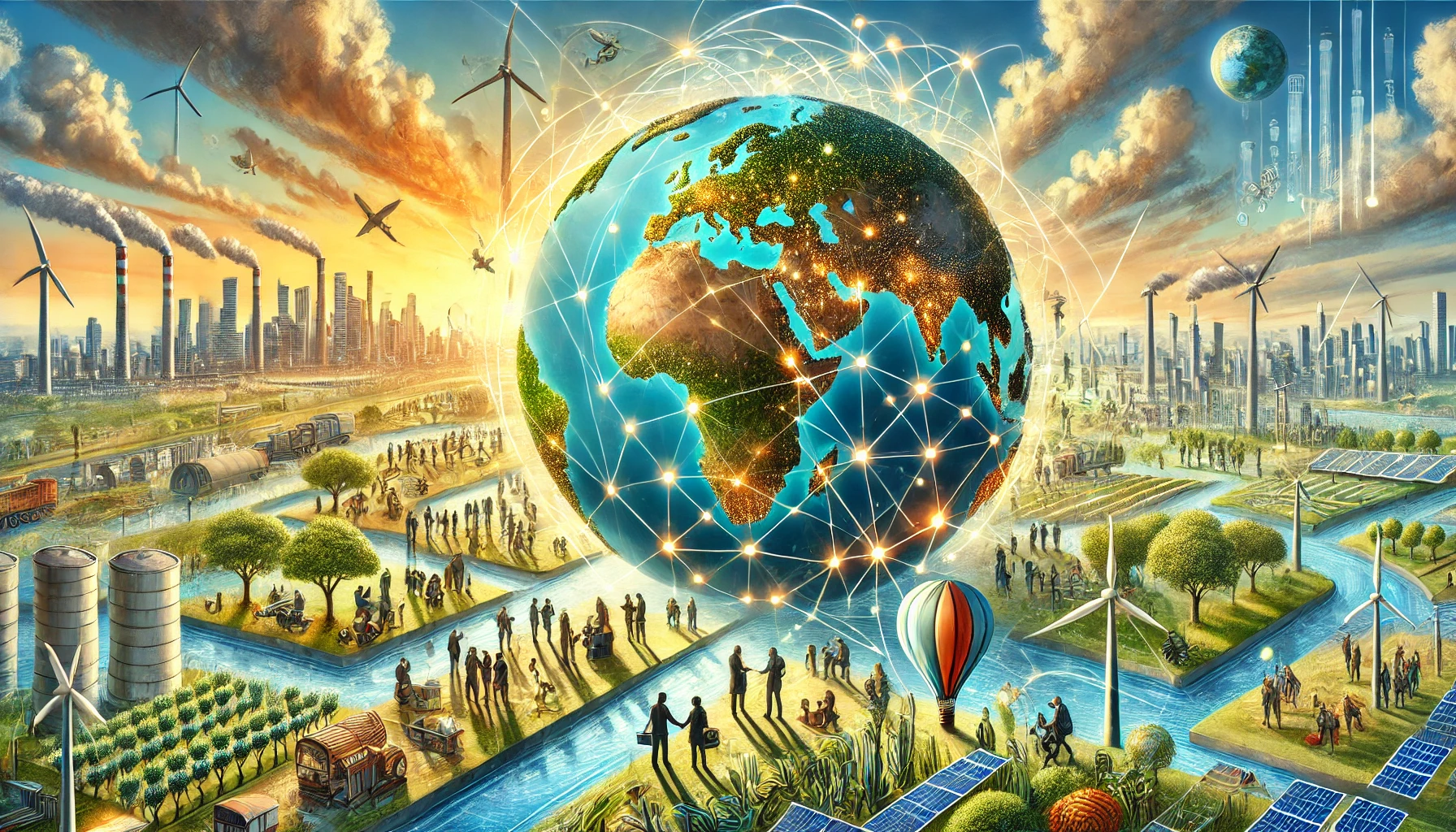Global Recovery at a Crossroads: Addressing Inequality, Trade, and Climate Risks
The World Economic Outlook report highlights the uneven global recovery, worsened by inflation, geopolitical tensions, and climate risks, disproportionately impacting low-income countries. It calls for bold, coordinated actions to address inequality, climate challenges, and global trade fragmentation for a more inclusive and sustainable future.

The World Economic Outlook report jointly authored by the International Monetary Fund (IMF), the Peterson Institute for International Economics, and the Brookings Institution, paints a detailed picture of the global economy in 2025. It underscores the uneven recovery following the pandemic, with advanced economies showing resilience while many low-income countries continue to struggle. Recovery remains fragile, shaped by inflation, geopolitical tensions, and persistent supply chain disruptions. Advanced economies, bolstered by robust fiscal measures and widespread vaccine rollouts, have made progress. However, they face rising debt levels, inflation fueled by energy price volatility, and tightening labor markets. Emerging economies face more severe challenges, hindered by limited fiscal resources, depreciating currencies, and external vulnerabilities. The disparities between nations, the report warns, have widened further, leaving many low-income countries on the brink of economic stagnation.
Fragmentation in Global Trade and Investment
A striking theme of the report is the fragmentation of global trade and investment flows, driven largely by geopolitical tensions and protectionist policies in major economies. While advanced economies and select emerging markets are reaping the benefits of regionalized supply chains, the least developed countries remain sidelined. The growing regionalization of trade poses a significant threat to the promise of globalization, risking the exclusion of low-income nations from critical markets. These economies, already heavily reliant on foreign direct investment and access to international trade, face mounting challenges as multinational corporations and governments prioritize regional partnerships over global integration. The report warns that this trend could entrench global inequalities, disproportionately harming those who have already been left behind by globalization.
Climate Crisis: A Looming Threat to Development
The escalating climate crisis takes center stage in the report, which identifies it as one of the most pressing global challenges of the 21st century. Low-income countries, despite contributing minimally to global emissions, bear the greatest burden of climate change. Sub-Saharan Africa, South Asia, and parts of Latin America are particularly vulnerable, with rising sea levels, desertification, and extreme weather events threatening their economies and food security. Without decisive action, the report cautions, climate risks could roll back decades of development progress. It calls for wealthier nations to deliver on their $100 billion annual climate finance commitments and to support technology transfer and adaptation measures. Highlighting the urgency of coordinated global efforts, the report argues that a lack of collective action would exacerbate global inequalities and destabilize economies already under stress.
Policy Recommendations: Tackling Challenges on Multiple Fronts
The report provides detailed policy recommendations aimed at tackling the immediate and long-term economic challenges. It advocates for advanced economies to balance monetary and fiscal measures to combat inflation without hampering growth. Targeted fiscal policies, such as subsidies and direct transfers to vulnerable households, are recommended to alleviate the cost-of-living crisis while maintaining fiscal discipline. Emerging markets, on the other hand, require urgent international financial assistance to ease debt pressures and invest in infrastructure, education, and healthcare. The report highlights the importance of multilateral institutions, such as the IMF and World Bank, in providing debt relief to avoid a cascade of sovereign debt crises in the Global South. Furthermore, it calls for structural reforms in emerging markets to boost productivity, improve labor market flexibility, and address institutional inefficiencies.
Building an Inclusive and Sustainable Future
At its core, the report emphasizes the need for a more inclusive globalization that prioritizes investments in human capital and social infrastructure. Access to quality education, healthcare, and digital technologies is identified as a cornerstone for equitable growth. Policymakers are urged to reduce gender inequality in labor markets and expand opportunities for small and medium-sized enterprises, which play a critical role in driving local economies. The report stresses the importance of global cooperation, including reforms to multilateral trade agreements and governance structures, to ensure that the benefits of economic growth are shared more equitably. It also identifies digital transformation as a powerful tool to bridge global divides, urging governments and international organizations to prioritize investments in digital infrastructure for underserved regions.
The report concludes with a clear call to action: the global community must act decisively to address economic divides and climate risks. While the challenges are formidable, the opportunities to build a more equitable and sustainable future are equally significant. By prioritizing inclusion, resilience, and cooperation, the world can create a pathway toward long-term prosperity for all nations.
- FIRST PUBLISHED IN:
- Devdiscourse










